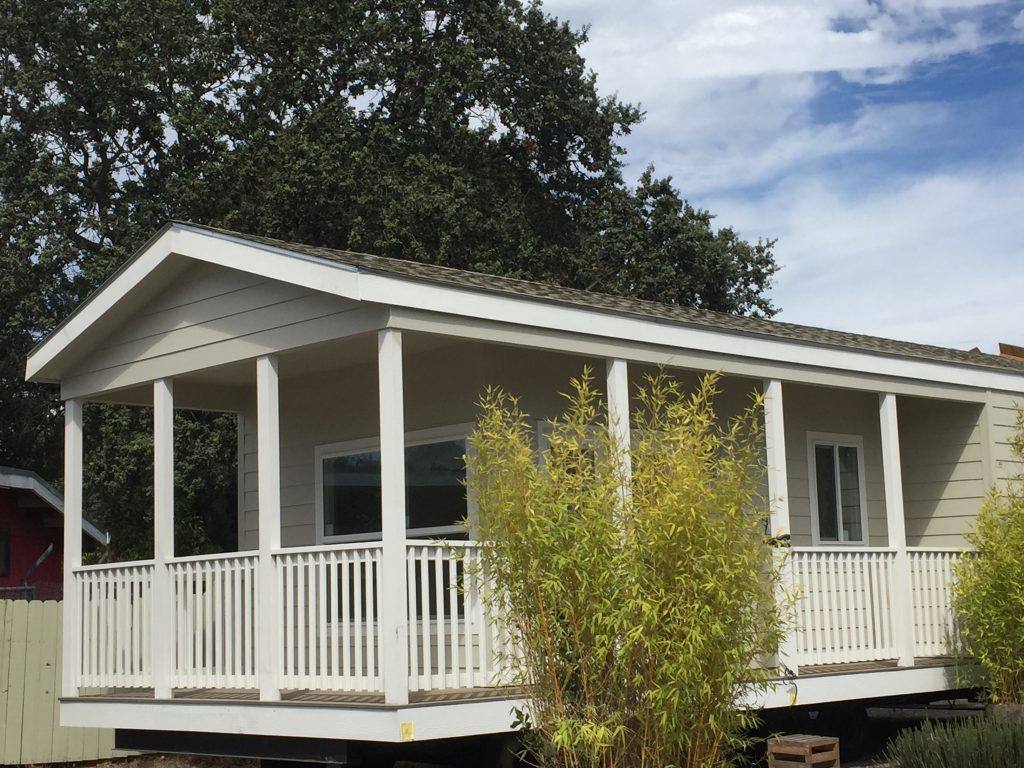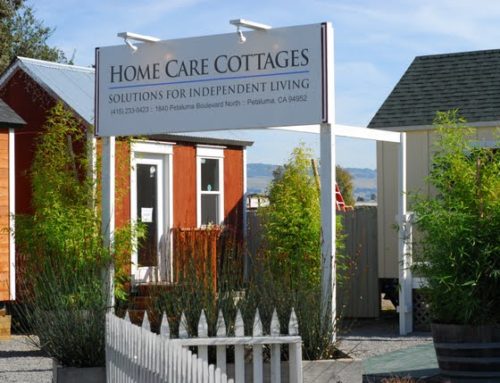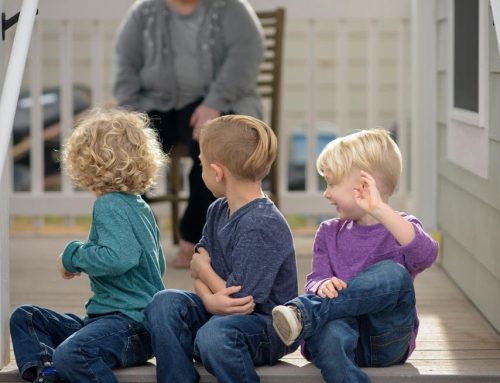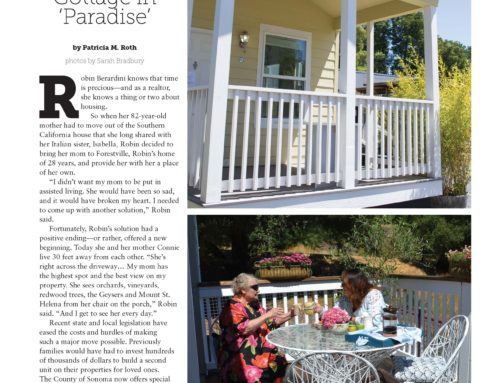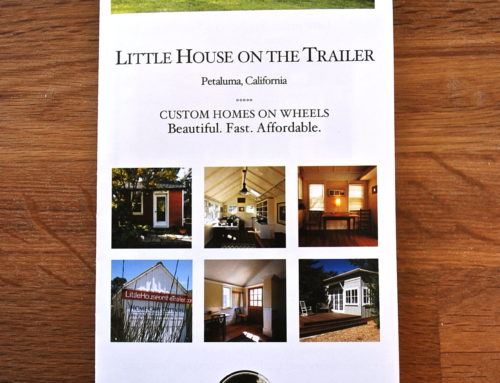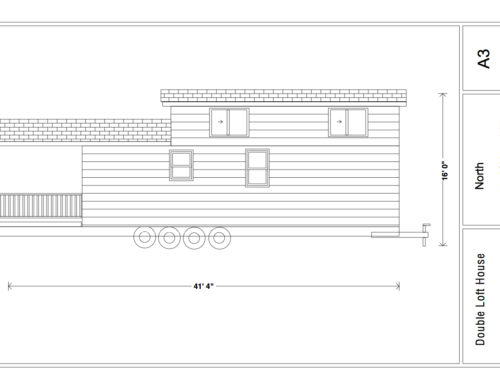CARETAKER’S COTTAGE IN ‘PARADISE’
TEXT PUBLISHED IN SONOMA DISCOVERIES MAGAZINE
BY PATRICIA M. ROTH 05 JUL 2017
Robin Berardini knows that time is precious—and as a realtor, she knows a thing or two about housing.
So when her 82-year-old mother had to move out of the Southern California house that she long shared with her Italian sister, Isabella, Robin decided to bring her mom to Forestville, Robin’s home of 28 years, and provide her with her a place of her own.
“I didn’t want my mom to be put in assisted living. She would have been so sad, and it would have broken my heart. I needed to come up with another solution,” Robin said.
Fortunately, Robin’s solution had a positive ending—or rather, offered a new beginning. Today she and her mother Connie live 30 feet away from each other. “She’s right across the driveway… My mom has the highest spot and the best view on my property. She sees orchards, vineyards, redwood trees, the Geysers and Mount St. Helena from her chair on the porch,” Robin said. “And I get to see her every day.”
Recent state and local legislation have eased the costs and hurdles of making such a major move possible. Previously families would have had to invest hundreds of thousands of dollars to build a second unit on their properties for loved ones. The County of Sonoma now offers special use permits for temporary home-care cottages and has eased some restrictions for permanent second units.
This was exactly what Robin’s family needed. “When my mom was my age, she told me, ‘Honey, I don’t want to live with you. It’s important for us to have our autonomy.’ Since I had been a realtor for so long, I had heard this often. Then I found Stephen Marshall with Little House on the Trailer,” Robin said.
Robin met with Stephen at his Petaluma-based company, which builds what are best known as affordable backyard accessory dwelling units (ADUs). He builds two kinds: Home Care Cottages and Second Units.
The Home Care Cottages are recreational trailers that look like regular houses. To be eligible, the caretaker must have a physician’s note. Turnaround from start to finish can be swift—around 90 days, Stephen said. The cost to buy a basic trailer is $65,000; onsite expenses run about $15,000. There’s a $600 one-time fee the owner must pay to the county, and an annual $125 renewal fee thereafter, he explained.
Second units are permanent buildings that become an improvement to the owner’s property. They require a building permit, an engineered foundation, utility hookups and fire protection. At Little House on the Trailer, the units cost $100,000, and typically $50,000 in permits and site work (see story next page by Samantha Campos).
“Because things are so particular to sites, general information is hard to make useful or relevant to individuals. You need a consultant to embark on one of these projects and I have a consultant for obtaining permits, and I refer people to him,” Stephen said.
Though Robin has 30 years of real estate experience, she said hiring a consultant to navigate the process was important. Otherwise, “It’s confusing,” she said. “The county has its own set of guidelines, which they are loosening, and the city has its own set of guidelines, too.” She started by talking to Stephen Marshall, who guided her through the process. “He was a godsend… having that man by my side. It was so emotional and I wanted to make sure I was doing everything right.”
Robin said they looked at floor plans and talked about her mom’s needs. “The unit is so efficient. We upgraded to French doors and 9-foot ceilings. We have a full kitchen, which we upgraded with a dishwasher. Down the hall there’s a bathroom and a full-size shower, and to the right is her generous bedroom with a full-size closet. We put her TV on the wall and installed a pocket door to save space. In the living room, in the corner, we got a circular dining table. We bought two couches made by women in South Carolina that turn into two single beds. It’s darling. “
Because Robin works full-time, she also hired a companion for her mother who prepares meals four days a week and “gets her out and about during the day. James has a cute dog named Jasper, who’s a little ambassador for Sonoma County. James takes my mom out and they go galavanting all over Sonoma County,” Robin said.
It took seven months for Robin to orchestrate packing and moving her mother from Southern California, where she had lived her entire life, into her custom-made cottage in Forestville. “She thinks she is in paradise—in fact that’s what she tells me: “I live in paradise,” Robin said.
The change in housing laws that enabled Robin to place a cottage on her property has made a marked difference in Robin’s family life and future. “It’s overwhelmingly beautiful to see my mother blossom and be happy and to get to know her. I’ve learned more about my mom in the last six months than the last 40 years. My heart is very full for her,” she said.
Robin’s advice to others who may be considering what she and her mom have done? “Don’t waste time, life is precious. Enjoy your family.”

